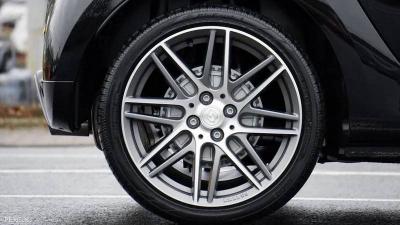Electric cars may emit more pollution than gas-powered cars, according to an old study that has recently resurfaced. The study, published in 2022 but brought back into discussion by the Wall Street Journal, found that brakes and tires emit particles 1850 times more than modern exhaust pipes equipped with filters that reduce emissions. It found that electric vehicles are, on average, 30 percent heavier than gas-powered vehicles, which leads to faster wear on brakes and tire tread, often releasing small toxic particles into the atmosphere.
Hisham Rakha, a professor at Virginia Tech, told the Daily Mail that "the study is partially accurate, and it is extremely difficult to determine the difference in the amount of microplastic emitted from the tire tread of electric vehicles versus gas-powered vehicles." Particle pollution can lead to increased health problems, including heart disease, asthma, and lung diseases. The increased weight of electric vehicles due to their lithium batteries leads to faster tire wear, ultimately resulting in higher emissions.
The study, conducted by Emissions Analytics, noted that the main difference between exhaust emissions and tire emissions is that the majority of particles emitted from tires go directly into the soil and water, while exhaust negatively affects air quality. The company tested tire wear in both electric and gas vehicles after driving at least 1,000 miles. Researchers used a sampling system to collect particles directly behind each tire and then measure the size of particles emitted from the tread.
They found that the greater the mass and weight of the vehicle, the faster tire emissions are released due to increased torque between the tires and the road. A separate report from 2020 mentioned that tires are likely to be a significant concern in the coming years as "consumers shift to larger and heavier vehicles."




